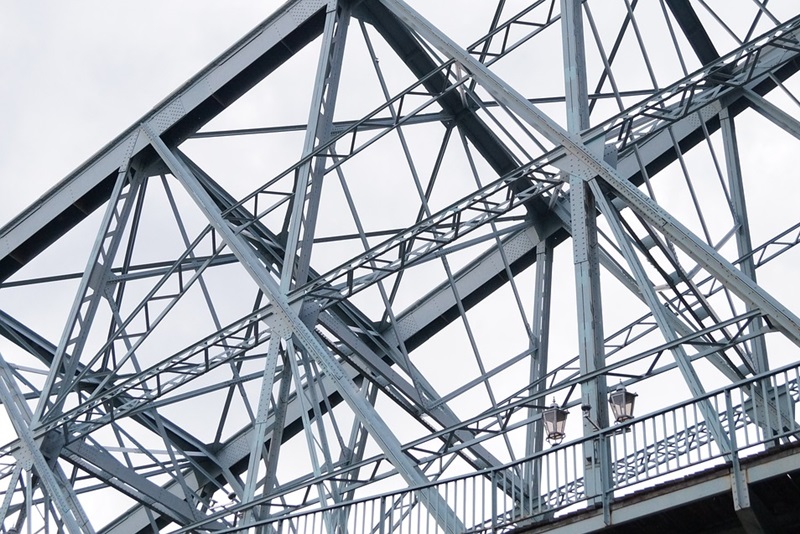The Ultimate Manual on Custom Steel Construction Solutions for Structural Projects
In the world of structural jobs, the value of customized steel manufacture solutions can not be overemphasized. From the fundamental understanding of steel fabrication fundamentals to the detailed process of choosing one of the most suitable materials, every action in this trip plays an essential duty in the supreme success of a job. As we browse via the complexities of style factors to consider, manufacture processes, and quality control procedures, a thorough handbook acts as a directing light for experts looking for quality in steel manufacture solutions. Stay tuned to discover the understandings that can reinvent the means architectural tasks are approached and executed.
Recognizing Personalized Steel Manufacture Fundamentals
Digging into the basics of customized steel fabrication provides understanding right into the intricate process of transforming raw steel into tailored architectural elements. Custom-made steel construction is a specialized manufacturing strategy that includes cutting, shaping, and putting together steel materials to produce distinct structures according to details job demands. Understanding the essentials of custom-made steel construction is essential for guaranteeing the effective implementation of structural tasks.
The process typically begins with the analysis of task specs and design needs. This preliminary phase includes comprehensive preparation and partnership between developers, engineers, and makers to identify the most appropriate method for making the steel elements. Accuracy is key throughout the fabrication process, as also minor variances can impact the structural honesty of the end product.
Numerous techniques, such as reducing, welding, and shaping, are used to transform raw steel into the wanted structural aspects. Skilled producers make use of advanced machinery and devices to guarantee precision and consistency throughout the construction procedure. Quality assurance measures are carried out to validate the honesty of the fabricated elements prior to they are constructed on-site, ensuring compliance with market requirements and project specifications.
Choosing the Right Steel Products

Primarily, the sort of structural project and its certain demands play an important role in establishing one of the most suitable steel materials. Factors such as the load-bearing ability, environmental conditions, and wanted life expectancy of the structure will determine the quality and sort of steel that need to be utilized.
Furthermore, the physical properties of the steel, consisting of ductility, weldability, and strength, have to align with the task's requirements to assure optimal efficiency and sturdiness (steel fixing). Additionally, factors to consider such as corrosion resistance, cost-effectiveness, and accessibility of the steel products ought to additionally be thought about throughout the selection process
Layout Considerations for Structural Tasks
Structural tasks require thorough attention to create factors to consider to guarantee both capability and security are focused on throughout the construction process. When it comes to making structural projects, numerous key aspects have to be taken into account to ensure the success of the undertaking. By very carefully considering these elements throughout the layout stage, engineers and designers can make certain the structural project's success from conception to completion.
Enhancing Fabrication Procedures for Performance

Moreover, carrying out lean production principles can considerably boost efficiency in steel fabrication. By lessening waste, maximizing workflow, and improving communication between various teams involved in the fabrication procedure, jobs can be completed much more swiftly and with better standards.
In addition, establishing an efficient manufacturing timetable and workflow can aid in focusing on tasks, assigning resources successfully, and conference task deadlines quickly. By having a clear plan in location and consistently monitoring progress, any potential traffic jams or delays can be recognized and dealt with without delay, making sure smooth and efficient fabrication procedures for structural jobs.
Quality Assurance and Job Administration in Steel Fabrication
To ensure the effective implementation of steel manufacture jobs, precise quality assurance measures and effective task monitoring methods are vital parts in maintaining precision and conference customer expectations. Quality assurance in steel construction involves rigorous evaluations at various phases of the construction process to validate conformity with project requirements and market standards. This consists of product testing, dimensional checks, and weld examinations to make sure structural honesty and security.
Project monitoring plays an important role in working with the various elements of steel manufacture jobs, such as scheduling, source allotment, and interaction among group members. A distinct project strategy with clear objectives, turning points, and timelines helps to keep an eye on progress and attend to any prospective issues proactively. Efficient interaction between all stakeholders, including customers, makers, designers, and professionals, is crucial for making certain that the project proceeds smoothly and meets the preferred top quality standards.
Conclusion
In final thought, personalized steel fabrication plays an important function in architectural tasks by providing tailored options using the right products and style considerations. Performance in fabrication processes, quality assurance, and reliable project management are important for successful results. By comprehending the fundamentals of custom-made steel construction and carrying out structured procedures, job teams can provide top notch and long lasting frameworks that satisfy the certain requirements of their clients.
Customized steel manufacture is a customized production method that includes cutting, shaping, and putting together steel materials to develop one-of-a-kind frameworks according to certain project requirements.To ensure the effective execution of steel fabrication projects, meticulous quality control actions and efficient job administration practices are essential parts in preserving precision and conference client expectations. Quality control in steel manufacture includes rigorous examinations at different stages of the manufacture process to verify conformity with project requirements and market standards (steel fabrication melbourne).Project monitoring plays an important duty in coordinating the numerous aspects of steel manufacture jobs, such as organizing, resource steel fabricators melbourne allocation, and interaction amongst team participants.In final thought, personalized steel construction plays a crucial function in architectural projects by giving tailored options using the ideal products and design factors to consider
Comments on “Professional Steel Fabricators Melbourne: Top Quality You Can Trust”